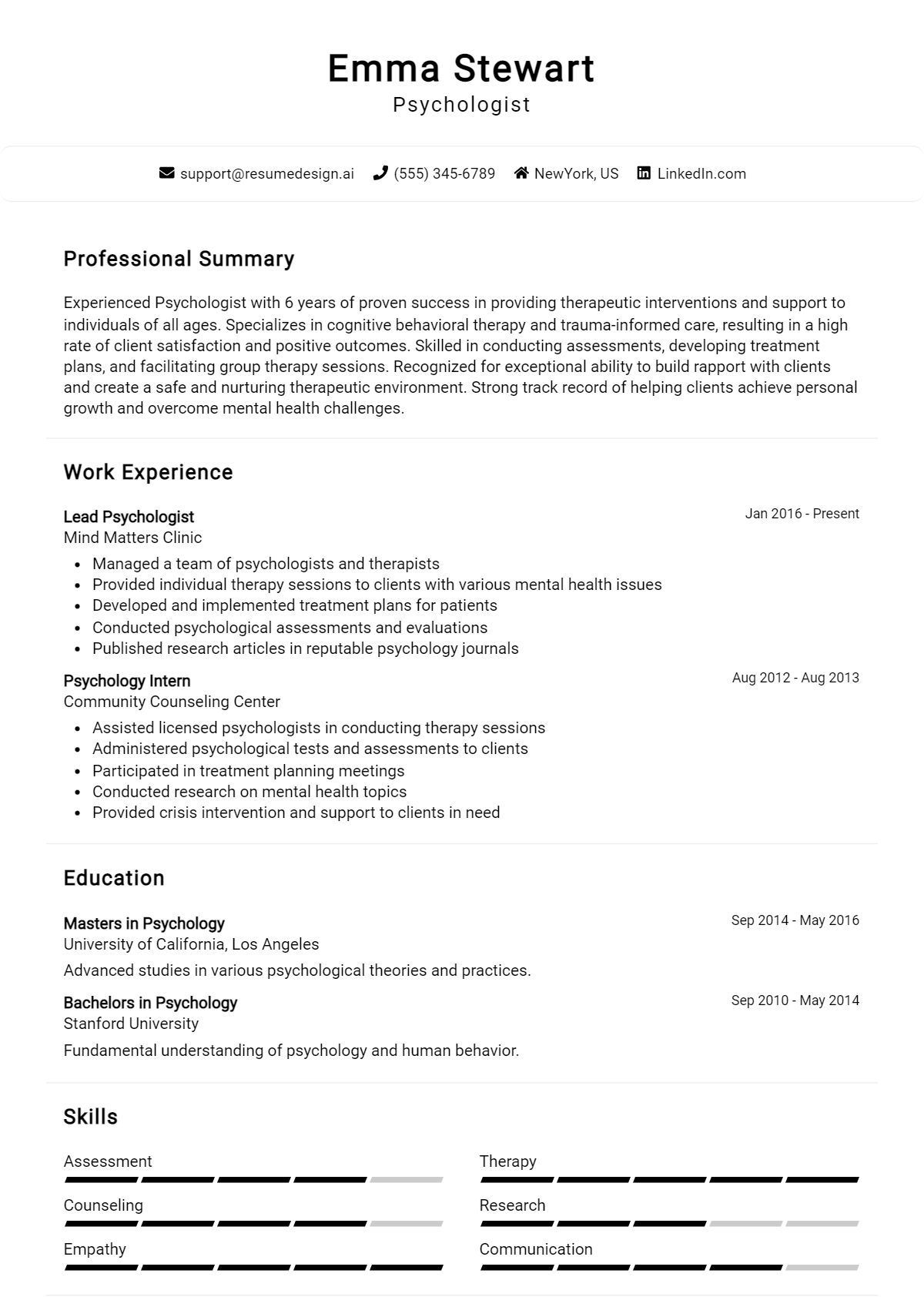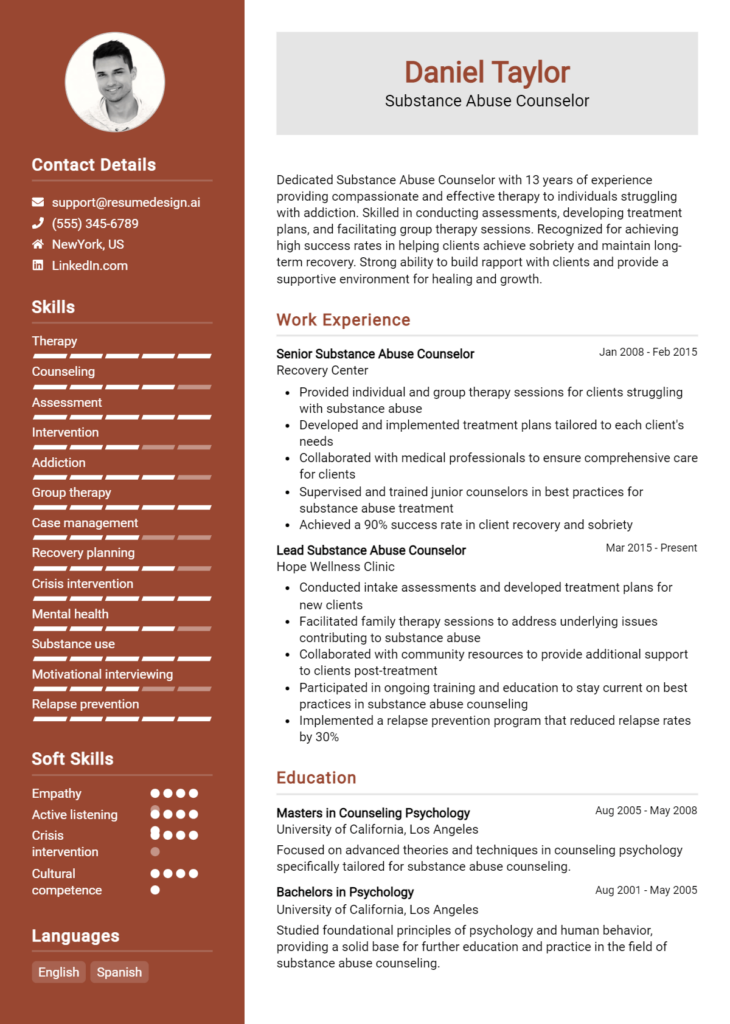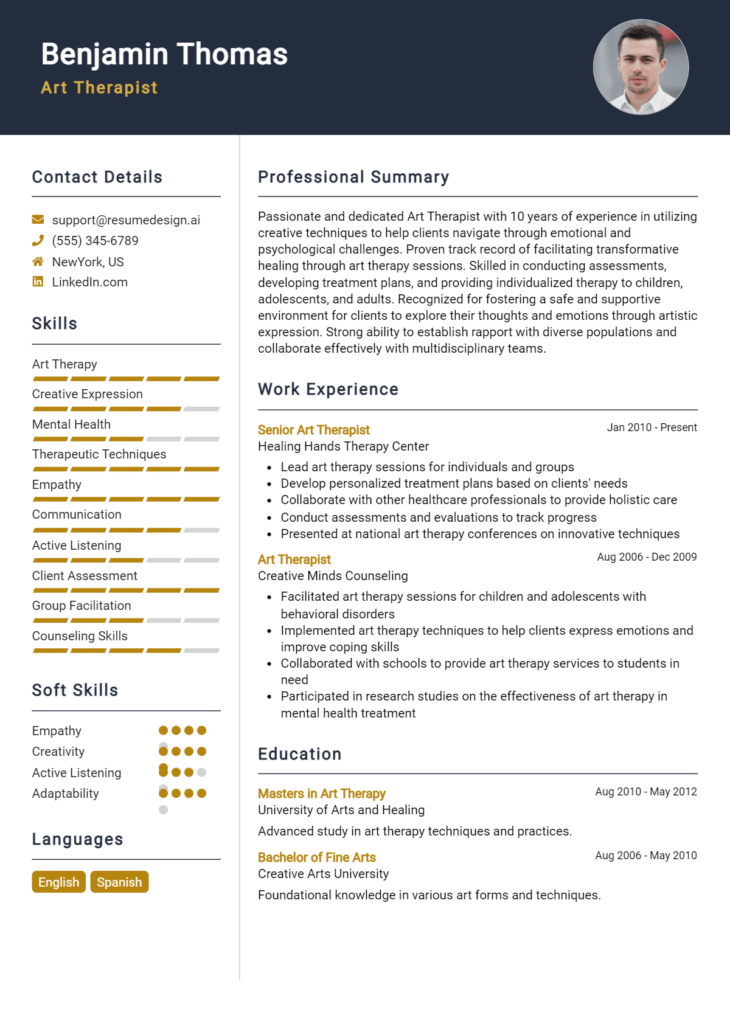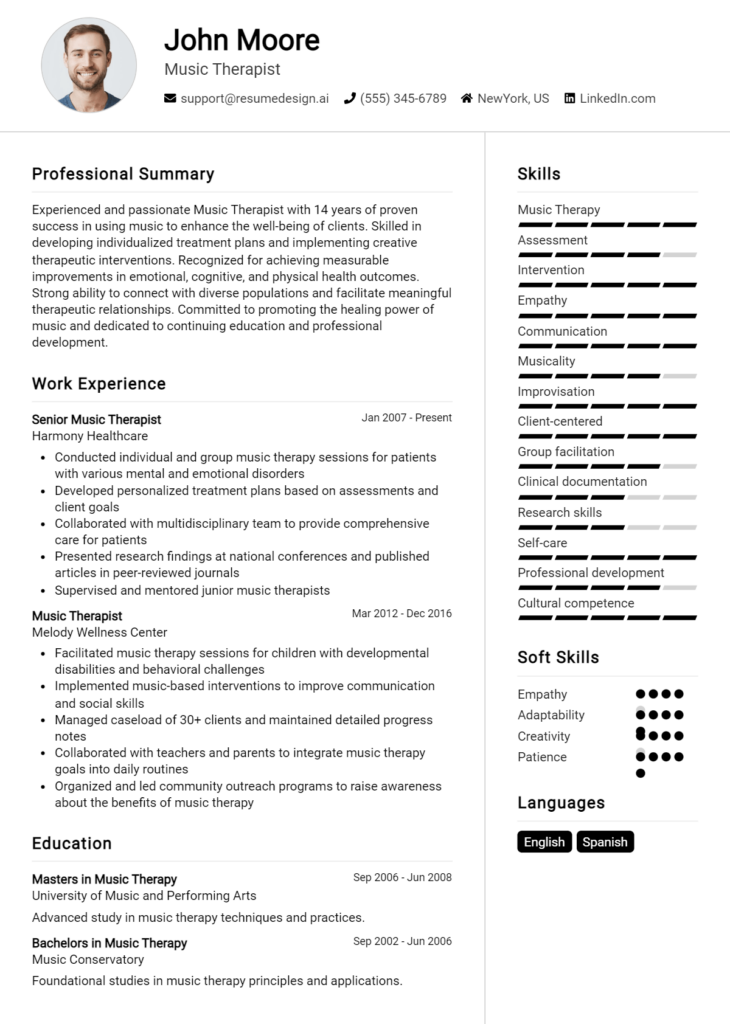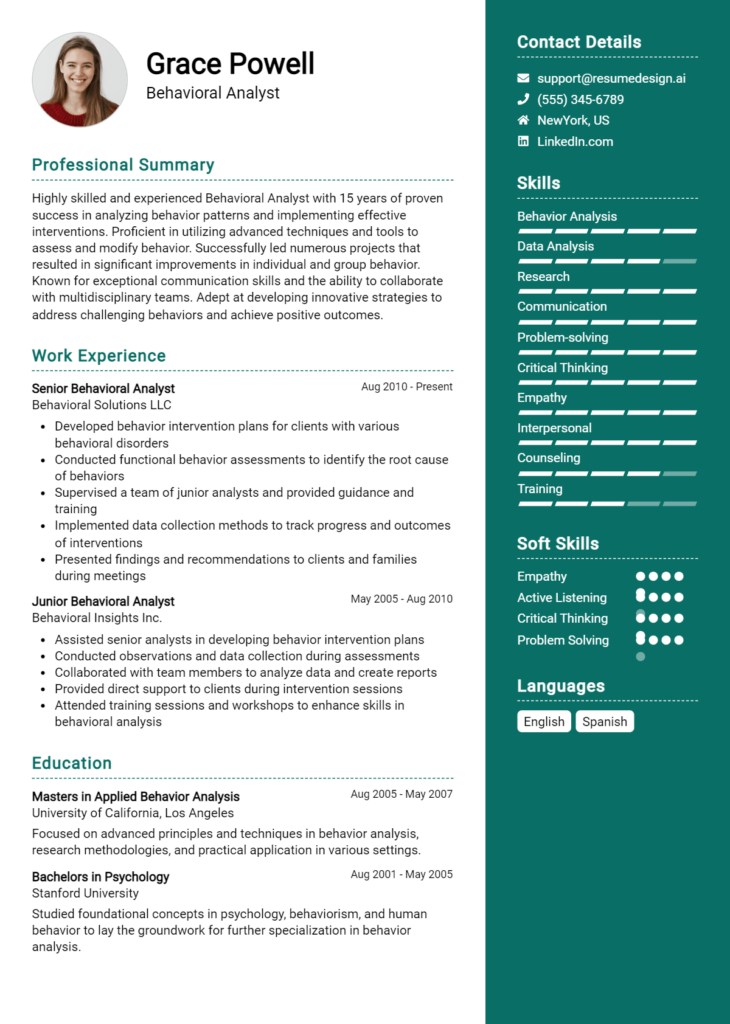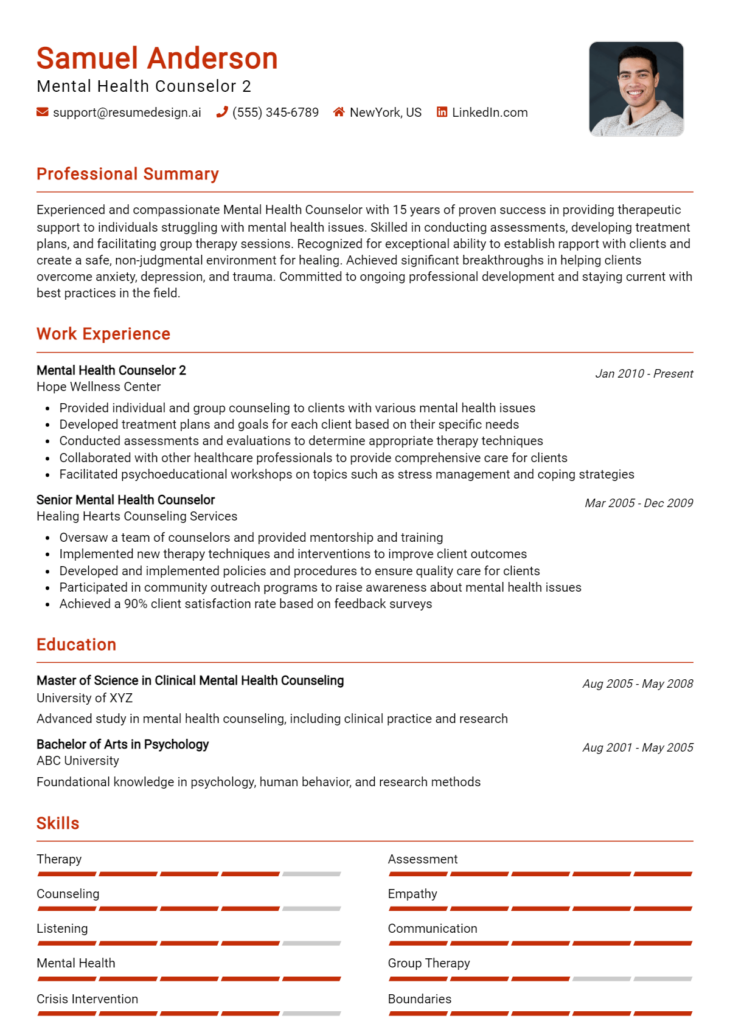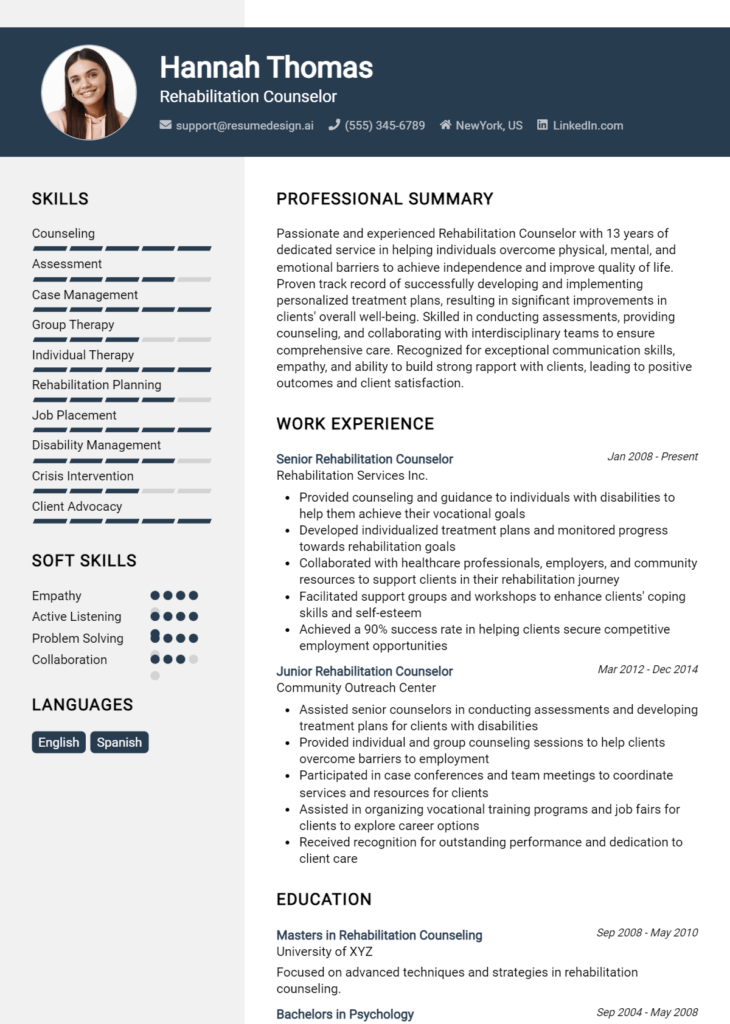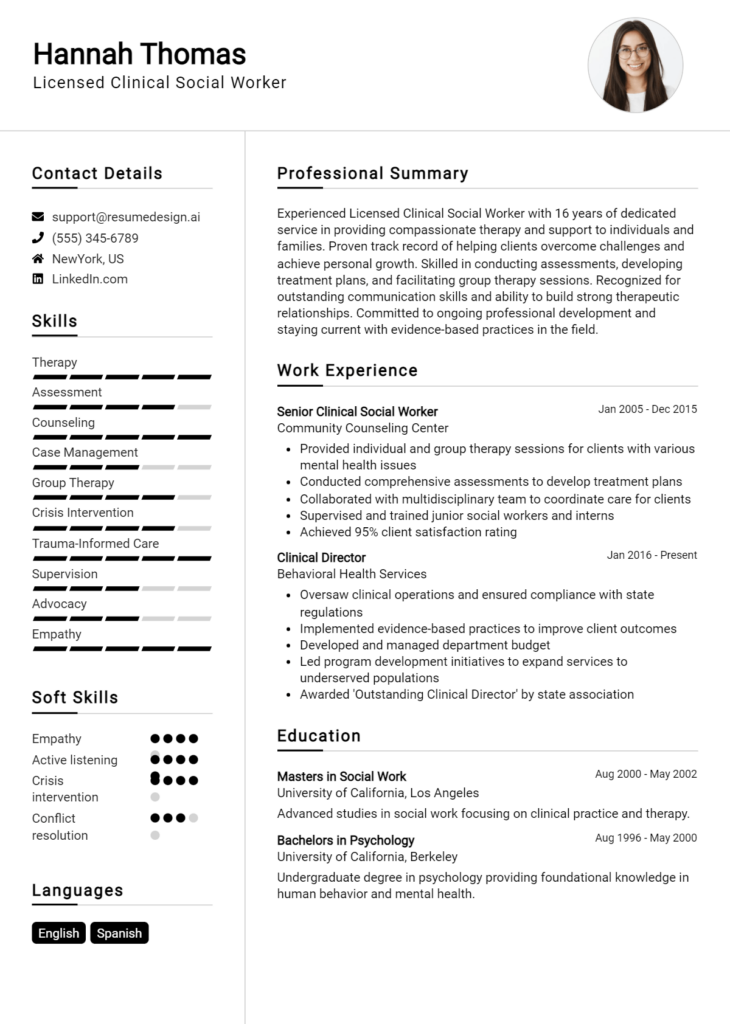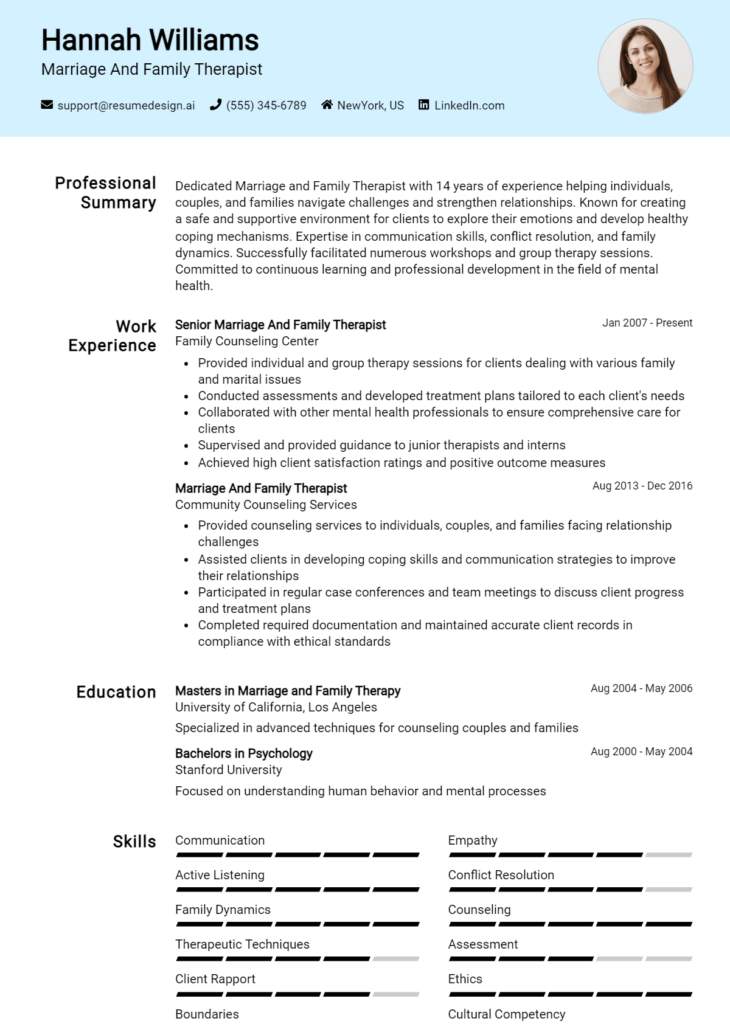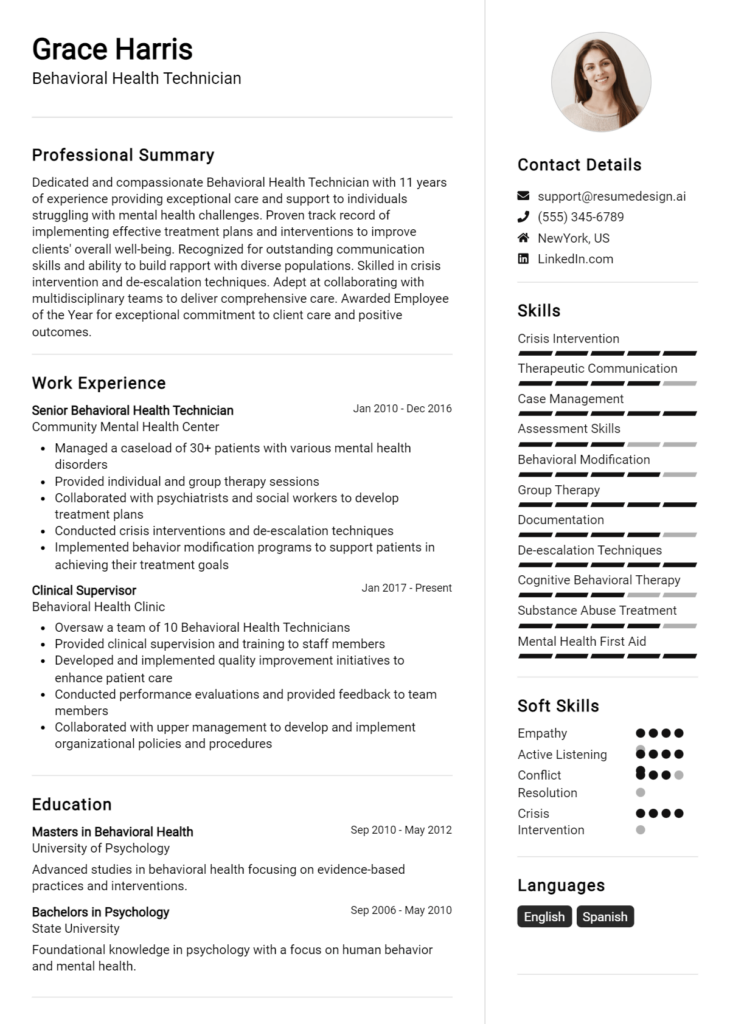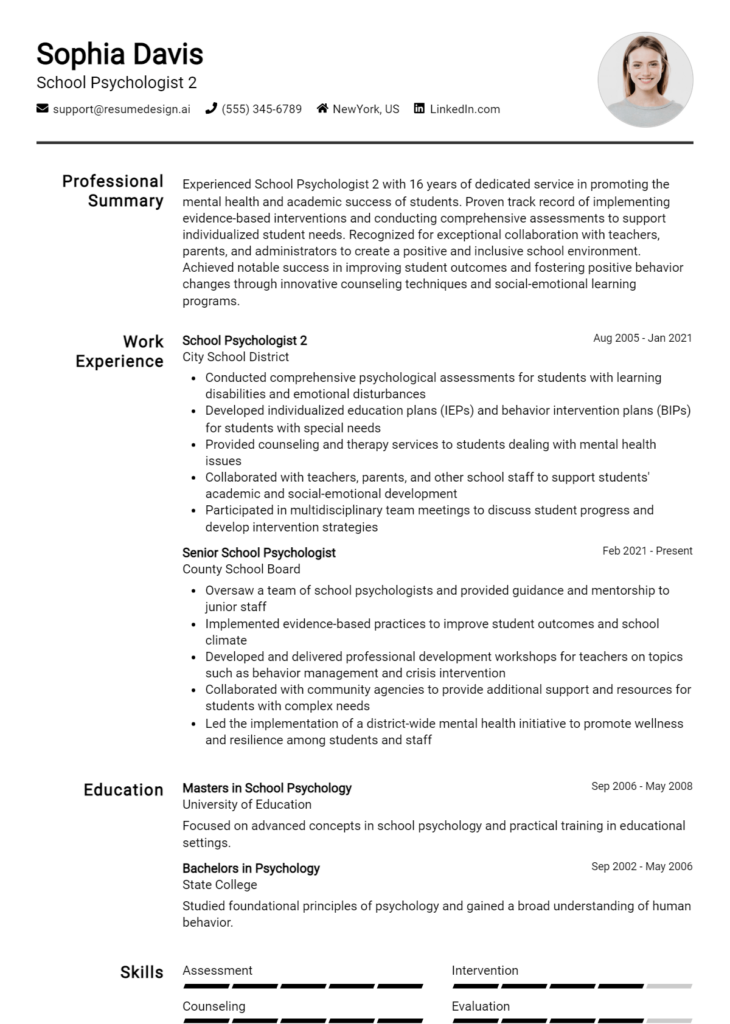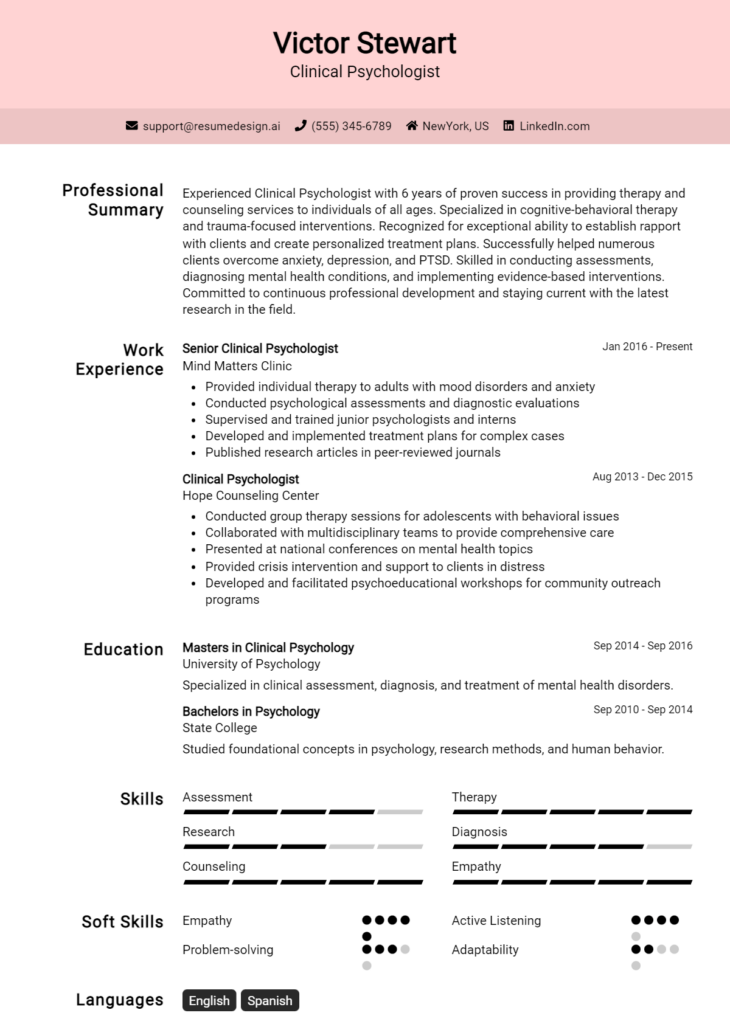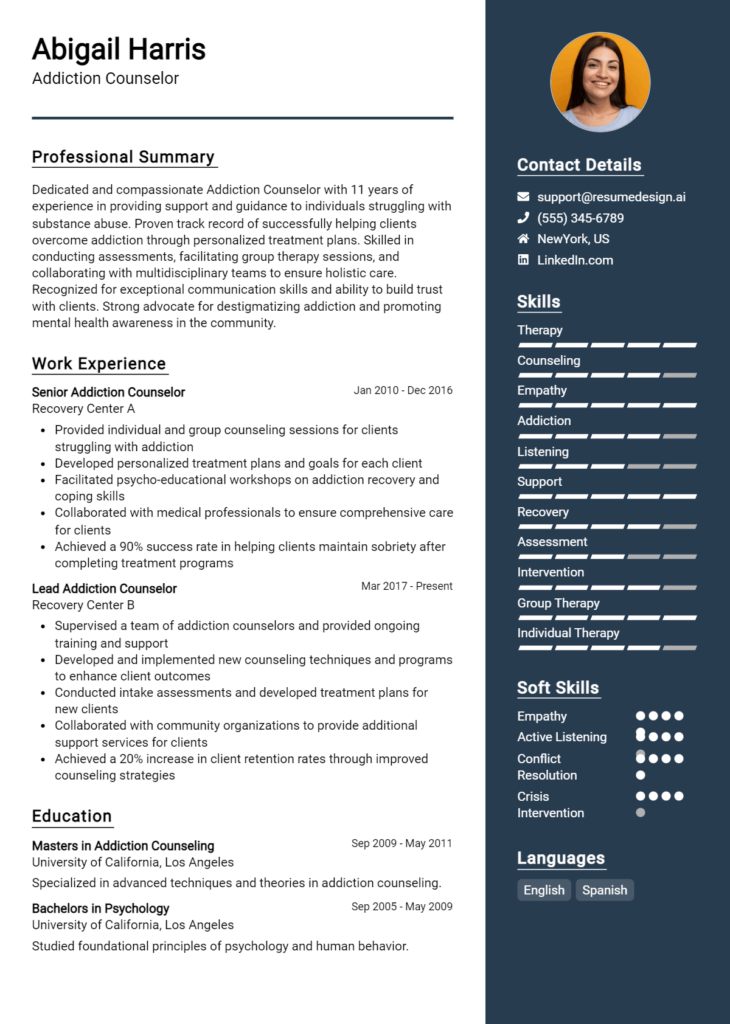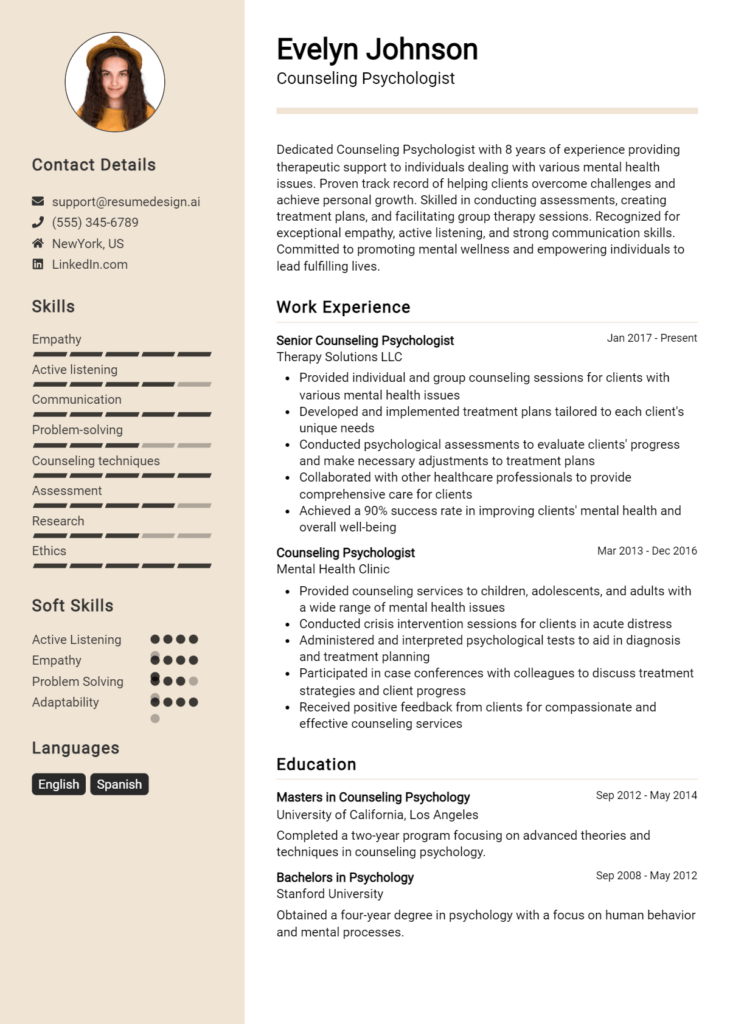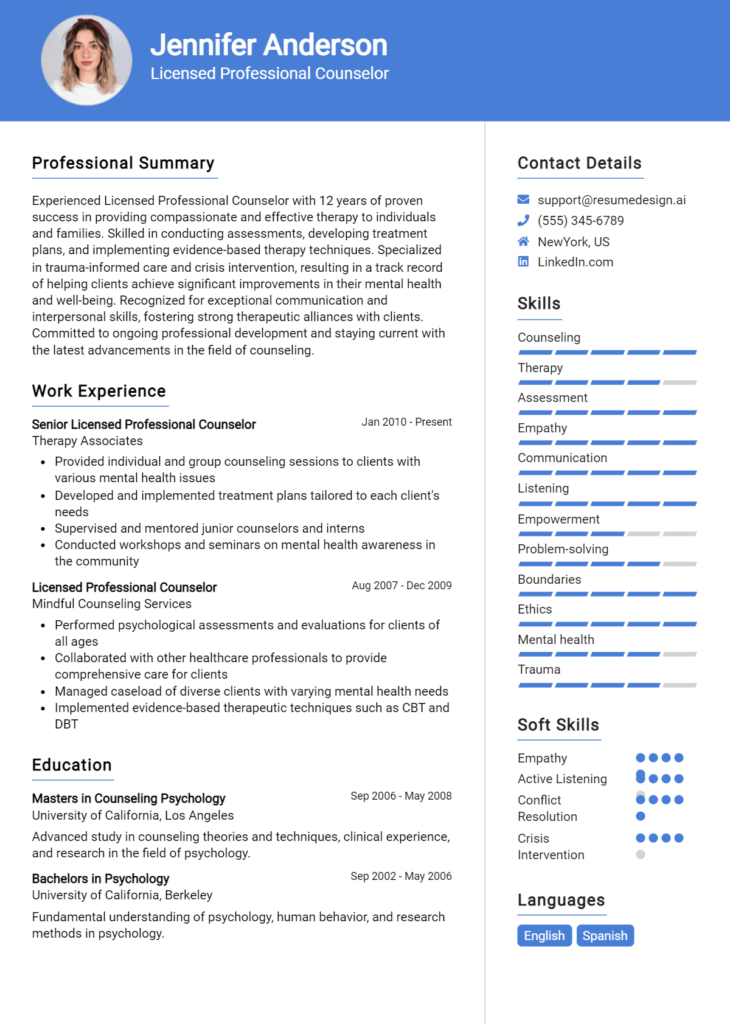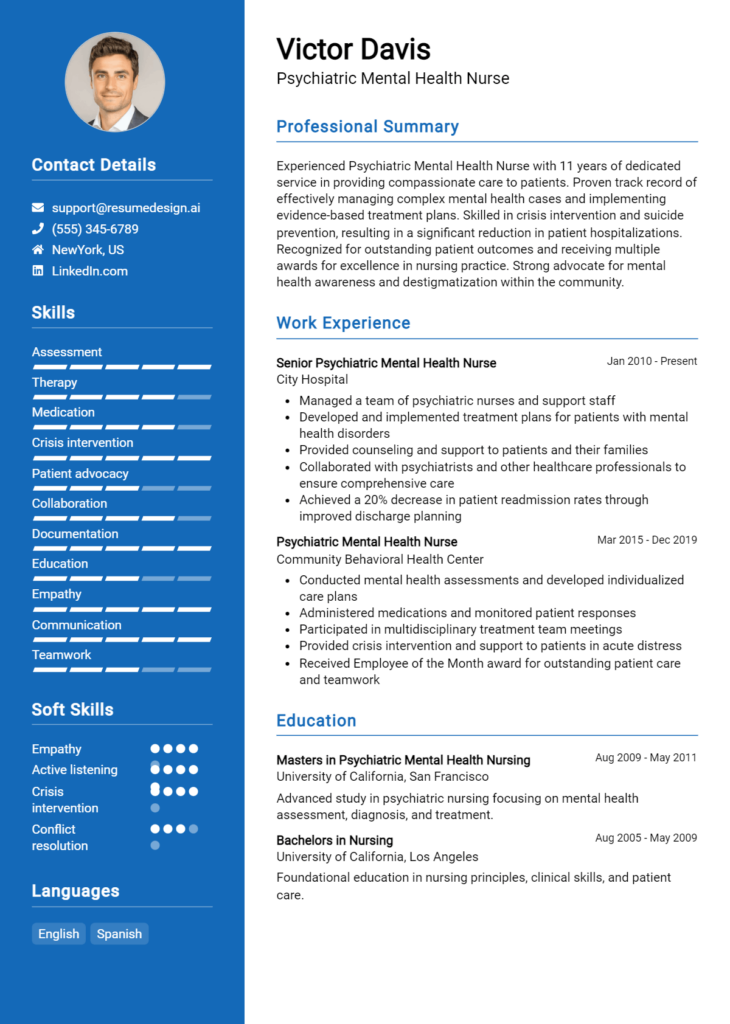Psychologist Core Responsibilities
Psychologists play a crucial role in understanding and addressing mental health issues, requiring a blend of technical, operational, and problem-solving skills. Their core responsibilities include conducting assessments, developing treatment plans, and providing therapy, which often bridges communication between healthcare providers, educational institutions, and corporate environments. Effective psychologists contribute to organizational goals by improving employee well-being and productivity. A well-structured resume that highlights these qualifications is vital for showcasing their competencies and securing opportunities in diverse settings.
Common Responsibilities Listed on Psychologist Resume
- Conduct psychological assessments and evaluations.
- Develop and implement individualized treatment plans.
- Provide therapy and counseling to clients.
- Maintain accurate and confidential client records.
- Collaborate with healthcare professionals and educators.
- Research and analyze psychological studies and data.
- Facilitate workshops and training sessions.
- Monitor client progress and adjust treatment as needed.
- Advocate for mental health awareness and education.
- Utilize evidence-based practices in therapy.
- Engage in continuous professional development and training.
High-Level Resume Tips for Psychologist Professionals
In the competitive field of psychology, a well-crafted resume serves as a vital tool for standing out among a pool of qualified candidates. Often, your resume is the first impression you make on potential employers, setting the stage for your professional narrative. It's not just a list of jobs; it should reflect your unique skills, key achievements, and the value you bring to the table as a psychologist. In this guide, we will provide practical and actionable resume tips specifically tailored for psychology professionals, helping you to effectively convey your expertise and make a lasting impact.
Top Resume Tips for Psychologist Professionals
- Tailor your resume to the job description by incorporating keywords and phrases that align with the specific requirements of the position.
- Highlight relevant experience by organizing your employment history in reverse chronological order, focusing on roles that relate directly to psychology.
- Quantify your achievements with specific numbers and outcomes, such as the number of clients treated or success rates in therapy interventions.
- Showcase essential skills such as active listening, empathy, and critical thinking, which are vital in the field of psychology.
- Include certifications and licenses prominently, as these are crucial for establishing credibility as a psychologist.
- Utilize a clean, professional format that is easy to read and navigate, ensuring that your most important information stands out.
- Incorporate a strong summary statement at the top of your resume that encapsulates your expertise, career goals, and unique approach to psychology.
- Consider adding a section for professional development, showcasing workshops, conferences, or continuing education relevant to your practice.
- Always include a section for volunteer work or internships that demonstrate your commitment to the field and provide additional experience.
By implementing these tips, you can significantly enhance your chances of landing a job in the psychology field. A strategically crafted resume not only highlights your qualifications but also demonstrates your professionalism and readiness to contribute effectively to potential employers, ultimately paving the way for a successful career in psychology.
Why Resume Headlines & Titles are Important for Psychologist
Resume headlines and titles play a crucial role in a Psychologist's application process, serving as the first impression that candidates make on hiring managers. A well-crafted headline can immediately capture attention, summarizing a candidate's key qualifications and strengths in a concise and impactful manner. This vital component of a resume should be relevant to the specific job being applied for, ensuring it resonates with the requirements and expectations of the hiring organization. A strong headline not only enhances visibility but also sets the tone for the rest of the resume, encouraging further exploration of the candidate's skills and experiences.
Best Practices for Crafting Resume Headlines for Psychologist
- Keep it concise: Aim for a headline that is brief yet informative, ideally one line long.
- Be role-specific: Tailor the headline to the specific psychologist position you are applying for.
- Use strong action words: Start with impactful verbs that convey your strengths and skills.
- Highlight key qualifications: Include certifications, specialties, or unique skills relevant to the position.
- Avoid jargon: Use clear language that is easily understood by hiring managers from various backgrounds.
- Include measurable achievements: If possible, reference quantifiable successes or experiences that set you apart.
- Make it unique: Stand out by showcasing what makes you different from other candidates.
- Ensure relevance: Always align your headline with the job description to demonstrate suitability.
Example Resume Headlines for Psychologist
Strong Resume Headlines
Licensed Clinical Psychologist Specializing in Cognitive Behavioral Therapy and Trauma Recovery
Experienced Child Psychologist with 10+ Years in Developmental Assessments and Family Therapy
Dedicated Psychologist with Proven Track Record in Evidence-Based Practices and Patient-Centered Care
Weak Resume Headlines
Psychologist Looking for a Job
Experienced Professional in Psychology
Strong headlines are effective because they immediately convey the candidate’s core strengths and areas of specialization, making a memorable impression on hiring managers. They are specific, impactful, and tailored to the job, which allows a candidate to stand out in a competitive field. In contrast, weak headlines fail to impress due to their vagueness and lack of targeted information, leaving hiring managers with little incentive to delve deeper into the resume. By avoiding generic phrases, candidates can better showcase their unique qualifications and capture the attention they deserve.
Writing an Exceptional Psychologist Resume Summary
A well-crafted resume summary is essential for psychologists, as it serves as the first impression for hiring managers. A strong summary quickly captures attention by highlighting key skills, experience, and accomplishments relevant to the role, effectively setting the tone for the rest of the resume. Given the competitive nature of the field, it is crucial for psychologists to present a concise, impactful summary that is tailored to the specific job they are applying for. This allows candidates to immediately convey their qualifications and establish their fit for the position.
Best Practices for Writing a Psychologist Resume Summary
- Quantify Achievements: Use specific numbers and percentages to demonstrate impact and effectiveness in previous roles.
- Focus on Key Skills: Highlight the most relevant skills that align with the job description, such as therapeutic techniques, assessment tools, and interpersonal skills.
- Tailor to the Job Description: Customize the summary for each application to reflect the requirements and responsibilities outlined in the job posting.
- Use Action Verbs: Start sentences with strong action verbs to convey a sense of proactivity and results-oriented thinking.
- Keep It Concise: Aim for 3-5 sentences that effectively summarize your qualifications without overwhelming the reader.
- Showcase Relevant Experience: Include specific experiences that directly relate to the position, such as clinical internships, specializations, or relevant certifications.
- Emphasize Soft Skills: Highlight important soft skills like empathy, communication, and problem-solving, which are crucial in psychological practice.
- Maintain Professional Tone: Ensure the language is professional and avoids overly casual phrases or jargon that may not be understood outside the field.
Example Psychologist Resume Summaries
Strong Resume Summaries
Dedicated clinical psychologist with over 7 years of experience in providing evidence-based therapeutic interventions. Successfully reduced patient anxiety levels by 40% through the implementation of Cognitive Behavioral Therapy (CBT) techniques in a community mental health setting.
Results-driven psychologist specializing in child and adolescent therapy, with a proven track record of improving client outcomes by 30%. Skilled in utilizing play therapy and family systems therapy to create a supportive environment for young clients.
Compassionate psychologist with 5 years of experience in a hospital setting, focusing on trauma-informed care. Developed and led workshops that increased staff understanding of PTSD treatment, leading to a 25% improvement in patient satisfaction scores.
Weak Resume Summaries
Psychologist with experience in various settings. I help people with their problems and have a degree in psychology.
Motivated individual seeking a psychology position. I have skills in helping clients and working with different populations.
The strong resume summaries are effective because they provide specific details about achievements, quantify outcomes, and directly relate to the job role, making the candidates stand out. In contrast, the weak summaries lack specificity and quantifiable results, making them too vague and generic to capture the attention of hiring managers.
Work Experience Section for Psychologist Resume
The work experience section of a Psychologist's resume is vital in demonstrating the candidate's practical knowledge and expertise in the field. This section not only showcases technical skills such as assessment, diagnosis, and treatment planning but also highlights the candidate's capability to manage teams and collaborate effectively with other professionals. By quantifying achievements—such as the number of clients served or improvements in client outcomes—candidates can provide concrete evidence of their impact. Aligning these experiences with industry standards enhances credibility and makes a compelling case for the candidate's qualifications.
Best Practices for Psychologist Work Experience
- Use action verbs to start each bullet point for a more dynamic presentation.
- Quantify achievements by providing numbers, percentages, or specific outcomes where applicable.
- Focus on relevant experiences that align with the requirements of the position you are applying for.
- Highlight collaborative efforts with other healthcare professionals to demonstrate teamwork skills.
- Include specific technical skills and tools used in previous roles that are relevant to the job.
- Showcase leadership roles or instances where you managed projects or teams effectively.
- Tailor the descriptions to reflect the competencies valued in the psychology field.
- Keep language concise and focused, avoiding jargon that may not be universally understood.
Example Work Experiences for Psychologist
Strong Experiences
- Developed and implemented a new cognitive behavioral therapy program that improved patient outcomes by 30% over six months.
- Led a multidisciplinary team of 10 professionals in a research project that resulted in a published study on anxiety disorders, enhancing the clinic's reputation.
- Conducted over 200 psychological assessments, leading to personalized treatment plans that increased client satisfaction ratings by 25%.
- Facilitated weekly group therapy sessions that helped reduce dropout rates by 40% over the course of one year.
Weak Experiences
- Worked with clients and helped them with their issues.
- Was part of a team that did some research on mental health.
- Assisted in therapy sessions and interacted with patients.
- Participated in various activities related to psychology.
The examples labeled as strong demonstrate specific, measurable outcomes and detailed descriptions of the candidate's contributions to their field, showcasing their technical expertise and leadership abilities. In contrast, the weak experiences are vague and lack quantifiable results, making it difficult for potential employers to assess the candidate's impact or skill level. Clear, precise, and impactful descriptions are essential for making a strong impression in the competitive field of psychology.
Education and Certifications Section for Psychologist Resume
The education and certifications section in a Psychologist resume is crucial for establishing the candidate's qualifications and expertise in the field. This section not only highlights the academic background, including degrees and relevant coursework, but also showcases industry-relevant certifications that indicate a commitment to professional development and adherence to best practices. By providing details on specialized training and continuous learning efforts, candidates can significantly enhance their credibility and demonstrate their alignment with the job role, making them more appealing to potential employers.
Best Practices for Psychologist Education and Certifications
- Include relevant degrees such as a Master's or Doctorate in Psychology or related fields.
- List certifications from recognized organizations, such as the American Psychological Association (APA) or the National Board for Certified Counselors (NBCC).
- Provide details about specialized training or workshops that enhance your skill set in specific areas, such as cognitive-behavioral therapy or trauma-informed care.
- Highlight relevant coursework that directly relates to the job description, demonstrating your preparedness for the role.
- Use clear and concise formatting to make the section easy to read and navigate.
- Prioritize recent educational achievements and certifications to reflect your current knowledge and skills.
- Consider including any continuing education credits that showcase your commitment to lifelong learning.
- Tailor the education and certifications section to match the specific requirements or preferences listed in the job posting.
Example Education and Certifications for Psychologist
Strong Examples
- Ph.D. in Clinical Psychology, University of California, Los Angeles, 2020
- Licensed Clinical Psychologist, State Board of Psychology, 2021
- Certification in Cognitive Behavioral Therapy, Association for Behavioral and Cognitive Therapies, 2022
- Graduate coursework in Advanced Psychopathology, University of California, Berkeley, 2019
Weak Examples
- Bachelor's degree in Sociology, State University, 2005
- Certification in First Aid and CPR, 2018
- Completed a workshop on Stress Management, 2010
- Outdated certification in Hypnotherapy, 2008
The strong examples are considered effective because they directly align with the qualifications needed for a psychologist role, showcasing advanced degrees, relevant certifications, and specialized training that supports the candidate's expertise. In contrast, the weak examples reflect irrelevant or outdated educational qualifications and certifications that do not enhance the candidate's profile or demonstrate a current understanding of the field, making them less impactful in the competitive job market.
Top Skills & Keywords for Psychologist Resume
An effective resume for a psychologist is essential in showcasing the candidate's qualifications and expertise. Skills play a crucial role in this process, as they not only highlight an individual's proficiency in psychological principles but also demonstrate their ability to connect with clients and colleagues. A well-crafted skills section can set a psychologist apart from others in the field, making it imperative to choose relevant and impactful keywords. This guide will provide insights into the top hard and soft skills that should be included in a psychologist's resume to reflect their capabilities and align with the demands of the profession.
Top Hard & Soft Skills for Psychologist
Soft Skills
- Empathy
- Active Listening
- Communication Skills
- Problem-Solving
- Critical Thinking
- Patience
- Conflict Resolution
- Adaptability
- Emotional Intelligence
- Team Collaboration
- Cultural Competence
- Rapport Building
- Ethical Judgment
- Compassion
- Time Management
- Resilience
- Motivational Skills
Hard Skills
- Psychological Assessment
- Research Methodology
- Cognitive Behavioral Therapy (CBT)
- Psychopathology
- Statistical Analysis
- Clinical Diagnosis
- Treatment Planning
- Crisis Intervention
- Behavior Modification Techniques
- Psychotherapy Techniques
- Knowledge of DSM-5
- Neuropsychological Assessment
- Group Therapy Facilitation
- Data Interpretation
- Report Writing
- Familiarity with Electronic Health Records (EHR)
- Knowledge of Ethical and Legal Standards
By integrating these essential skills into your resume, you can effectively communicate your qualifications. Additionally, pairing these skills with relevant work experience will further strengthen your application and demonstrate your readiness for the role of a psychologist.
Stand Out with a Winning Psychologist Cover Letter
Dear Hiring Manager,
I am writing to express my interest in the Psychologist position at [Company/Organization Name], as advertised on [where you found the job listing]. With a Doctorate in Psychology and over [X years] of clinical experience, I have developed a robust skill set that allows me to effectively assess, diagnose, and treat a wide range of psychological conditions. My commitment to fostering mental well-being and my passion for helping individuals navigate their challenges align perfectly with the values held by your organization.
Throughout my career, I have had the privilege of working with diverse populations, including children, adolescents, and adults. My experience in various therapeutic settings has equipped me with a versatile approach to treatment, incorporating evidence-based practices such as Cognitive Behavioral Therapy and Mindfulness techniques. I pride myself on my ability to create a safe and supportive environment that encourages open communication and fosters healing. At [Previous Employer/Institution], I successfully implemented a new therapeutic program that led to a 30% improvement in patient outcomes, demonstrating my commitment to continuous improvement and excellence in mental health care.
Furthermore, I am dedicated to professional development and staying current with the latest research in psychology. I regularly attend workshops and conferences, and I am an active member of [relevant professional organizations]. I believe that collaboration and continuous learning are essential in providing the best possible care to clients. I am excited about the opportunity to contribute my skills to [Company/Organization Name] and to work alongside other dedicated professionals who share my passion for mental health.
Thank you for considering my application. I am looking forward to the possibility of discussing how my background, skills, and enthusiasms align with the needs of your team. I am eager to bring my expertise in psychology to [Company/Organization Name] and contribute to your mission of enhancing the mental well-being of our community.
Sincerely,
[Your Name]
[Your Contact Information]
Common Mistakes to Avoid in a Psychologist Resume
When crafting a resume as a psychologist, it's crucial to present your qualifications and experience in a manner that effectively showcases your professional capabilities. However, many candidates make common mistakes that can detract from their overall appeal to hiring managers. By avoiding these pitfalls, you can enhance your resume's clarity and impact, ensuring it stands out in a competitive job market. Here are some mistakes to steer clear of:
Generic Objective Statement: Using a one-size-fits-all objective can make your resume seem impersonal. Tailor your objective to reflect your specific career goals and the value you bring to the organization.
Overloading with Jargon: While psychological terminology is essential, overusing jargon can alienate readers. Aim for clear and accessible language that conveys your expertise without overwhelming the audience.
Neglecting Relevant Experience: Failing to highlight pertinent experience can lead to missed opportunities. Focus on showcasing roles and responsibilities that directly relate to the job you’re applying for, including internships and volunteer work.
Ignoring Quantifiable Achievements: Listing duties without quantifying your successes can make your contributions seem less significant. Use metrics to illustrate your impact, such as the number of clients treated or improvements in patient outcomes.
Inconsistent Formatting: A resume that lacks uniform formatting can appear unprofessional. Maintain consistent font styles, sizes, and spacing throughout to create a cohesive look that’s easy to navigate.
Too Much Personal Information: Including excessive personal details, such as age or marital status, is unnecessary and could lead to biases. Stick to professional information that showcases your qualifications and skills.
Focusing on Job Descriptions Rather than Skills: Simply describing previous roles can be less effective than highlighting specific skills and competencies. Emphasize the skills that set you apart as a psychologist, such as empathy, assessment capabilities, and intervention strategies.
Omitting Continuing Education: In a field that values ongoing learning, neglecting to mention workshops, certifications, or courses can be a missed opportunity. Include any continuing education to demonstrate your commitment to professional development and staying current in the field.
Conclusion
As a psychologist, your role is crucial in understanding and addressing mental health issues, providing support, and facilitating positive change in individuals' lives. Throughout this article, we've explored the various responsibilities and skills required for success in this field, including effective communication, empathy, and the application of psychological theories.
It’s essential to not only hone your skills but also to present them effectively in your job application materials. A well-crafted resume can make a significant difference in standing out in a competitive job market. Therefore, we encourage you to take a moment to review your Psychologist Resume.
To assist you in this process, consider utilizing the following resources:
- Explore resume templates to find a design that highlights your qualifications effectively.
- Try out the resume builder to create a polished and professional resume tailored to your experience.
- Check out resume examples for inspiration and insights into how to structure your own resume.
- Don’t forget to craft a compelling introduction with our cover letter templates to complement your resume.
By taking advantage of these tools, you can ensure that your application reflects your expertise and dedication to the field of psychology. Start enhancing your professional presence today!

